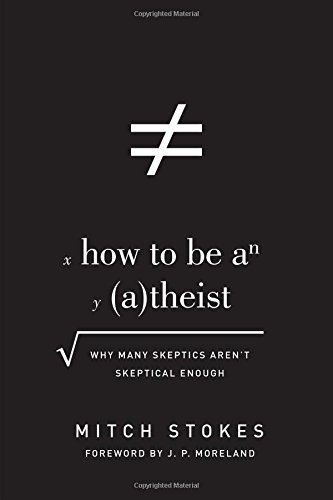A Brief Book Summary from Books At a Glance
About the Author
Mitch Stokes (PhD, Notre Dame) is a senior fellow of philosophy at New St. Andrews College in Moscow, Idaho. In addition to studying philosophy under world-renowned philosopher Alvin Plantinga, Stokes holds degrees in religion and mechanical engineering, and holds five patents in aeroderivative gas turbine technology.
Overview
Mitch Stokes questions whether skeptical atheists really allow their skepticism to go as far as they claim. Do they question their own assumptions about our senses and the reaches of science as intensively as they do religious belief? What about morality? Can it survive in a naturalistic framework?
Table of Contents
Introduction: Skepticism and Contemporary Atheism
Part 1: Sense and Reason
- Hume Exhumed
- The Believing Primate
Part 2: Science
- Science: Ruining Everything since 1543?
- Science and the Humean Condition
- Photoshopped Science
- Real Science Is Hard
- Arguing with Success
- The Current Crisis
- Physics-Based Metaphysics
- God: The Failed Hypothesis?
Part 3: Morality
- If God Is Dead, Is Everything Permissible?
- Some Brush Clearing
- Moral Mammals: The Evolution of Ethics
- An All-Natural Morality?
- Can Science Determine Human Values?
- Morality Is Personal
- Can God Ground Morality?
- Living With Moral Nihilism
- What’s the Point of It All?
Summary
Introduction: Skepticism and Contemporary Atheism
There are really two things that stand out in current discussions about atheism, aside from atheism itself of course: science and morality. These are two important issues! From the anti-religious treatises of Richard Dawkins and Christopher Hitchens to the classic works of Immanuel Kant, the ability to know things in light of our advancements in understanding the universe apart from theological explanations throws up the unique importance of science and morality for the modern mind. It is central to the basic fact/value relationship: science delivers what is while morality tells us what we ought to do. Moreover, the skepticism exercised toward God-talk of folks like Dawkins and Hitchens leads them to yearn for a new Enlightenment, one free of religion all together, which maintains scientific knowledge and morality on its own grounds.
In short, they say that a kind of sober and reasonable scientific skepticism goes hand in glove with skepticism toward God. While a sober skepticism, on the one hand, is vital – one which doesn’t believe just anything but does venture to know some important things about human life – it can be pushed too far. Carl Sagan, the famous scientist and atheist, made the point that “if you are only skeptical, then no new ideas make it through to you. You never learn anything new.” But can the skepticism of many atheists, the thing they say encourages them to dismiss the notion of the divine, make room for all that they claim to know? The purpose of this book is to show “that there is a conflict between sober skepticism and science-induced atheism.” We will approach the argument in three parts, the first about the physical world outside our own minds, the second about observable scientific entities, and the third about objective moral laws.
Part 1: Sense and Reason
Chapter One – Hume Exhumed
Chapter Two – The Believing Primate
In thinking about the science-induced skepticism which David Hume so well exemplified, it’s crucial to see the link between the Scientific Revolution and the Enlightenment’s skeptical distemper. Enlightenment projects in epistemology arose in the context of the West’s appropriation of greater and greater scientific knowledge, chief among them perhaps the paradigmatic advances in physics at the hands of Isaac Newton. “The experimental method” could not be contained to mathematics and gravitation; what works for the sensible world translated into the moral philosophy of Hume insofar as human experience is the only window we have.
We ought to be skeptical even about our sense perception. For example, a person might know that there appears to him to be a tree, but why couldn’t it actually be a dream or a hallucination or, in more modern terms, why couldn’t he be a brain in a vat being stimulated by cruel engineers to “see” a tree? True, we can’t help but believe our senses by instinct, and perhaps we’re right, but there is no reason to trust our senses. What happens then if senses are all we have to perceive reality? This Humean skepticism, then, involves some measure of doubt, however small, for all of our conclusions. Thus using reason, built as it is on observation with its omnipresent bits of doubt, involves a measure of faith: to try to justify our conclusions or to validate reason itself involves using reason in the first place. Thus if Hume is right, and we think he is, there is no noncircular argument for the reliability of reason or our senses.
And yet, while reason threatens to undermine itself – sometimes you’re your own worst enemy – we can at least work toward a coherent story of perception and reason. We can never…
[To continue reading this summary, please see below....]The remainder of this article is premium content. Become a member to continue reading.
Already have an account? Sign In
